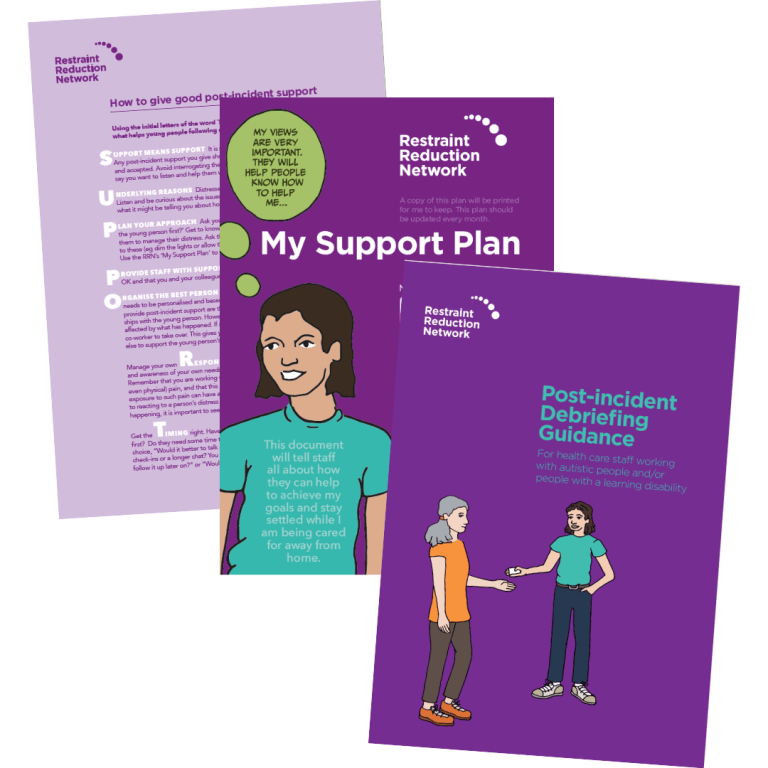RRN Post-Incident Debriefing and Support Toolkit
In autumn 2019, a National Quality Improvement Taskforce was established to improve current specialist children and young people’s inpatient mental health, autism and learning disability services in England. The Taskforce seeks to make a rapid set of improvements in care, with delivery of the programme in 2022.
The RRN Post-Incident Debriefing and Support Toolkit was commissioned by NHS England in support of its work on the use restrictive practices.
Post-incident debriefing helps people in health care settings, and the staff that support them, to recover and learn from a crisis, reducing restrictive practices.

The Post-Incident Debriefing and Support Toolkit aims to promote rights respected care by increasing and improving support provided to children and young people post-incident. The resources include both guidance for healthcare staff working with autistic people and/or people with a learning disability, and guidance for healthcare staff working in in-patient setting.
RRN Manager Alexis Quinn said: “Getting post-incident support right is absolutely crucial. It helps ensure the immediate physical and emotional wellbeing of the people involved and also works to repair and maintain the vital relationships that help people feel safe and secure.
“We know that incidents are highly emotive and distressing for the people involved. By helping both staff and people receiving care to know themselves better, people have more control and can better communicate their needs – ultimately leading to better outcomes for patients, families and staff.
“The RRN Post-Incident Debriefing and Support Toolkit has been developed to help healthcare staff improve the support available to children and young people post-incident. We hope that the Toolkit will help make a difference in care and hospital settings where increased post-incident support is much needed!
“The RRN Post-Incident Debriefing and Support Toolkit was co-produced with children, young people and their families and we would like to thank them for their huge contribution and collaborative efforts in creating these important resources.”
While these resources were developed with young people in inpatient services, we think they have relevance for other settings and can be adapted. We would like to invite any services that have models of good practice in place to contact us, please email us at [email protected]
Download the Toolkit resources now:
- Post Incident Debriefing Guidance for staff working in inpatient settings
- Post Incident Debriefing Guidance for staff working with autistic people or people with learning disabilities
- Post Incident Debriefing Animation
- Practical Post Incident Support
- My Support Plan
- Feeling Safe Survey
- Post Incident Support Guidance Poster 1
- Post Incident Support Guidance Poster 2
- Post Incident Support Guidance Poster 3
- PIS When Someone Needs Your Support poster